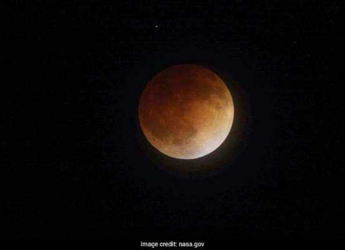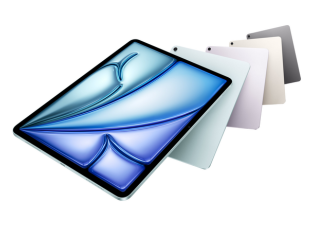- Home
- Entertainment
- Entertainment Features
- Inside Foundation, the Apple TV+ Sci Fi Series That Makes Asimov’s Books Richer in Every Way
Inside Foundation, the Apple TV+ Sci-Fi Series That Makes Asimov’s Books Richer in Every Way
Women, Indian stars, a new dynasty, emotions, and Iceland.

Photo Credit: Apple
Lou Llobell as Gaal Dornick, Jared Harris as Hari Seldon in Foundation
Foundation, premiering September 24 on Apple TV+, finally brings Isaac Asimov's seminal sci-fi novel series to screen, nearly 80 years since they were first published as a series of short stories. That's a really long time, and Foundation creator David S. Goyer — best known for his several superhero contributions, writing the Blade trilogy and Man of Steel, and creating the DC series Krypton and Constantine — is well aware of that.
“Any even cursory reader of the books will understand that it could never be a line-for-line adaptation,” Goyer told a group of reporters over video conferencing last week. “Asimov was writing the books in the late 40s [and] early 50s. We live in a very different world now.”
That's an understatement. Sci-fi was a male-dominated sphere in Asimov's time, with the author further contributing to that climate by his serial sexual harassing manners. Women didn't fare any better in the Foundation series. Female characters were rare to come by, and when they did, they weren't portrayed flatteringly. Thankfully, Foundation the TV show does much in this regard, both by gender flipping many characters, and introducing new ones altogether.
Asimov was also writing for a largely white Western populace. Though he gave his characters exotically spelled names, they carried vanilla English pronunciations. A central character in the books is the mathematician Hari Seldon — played by Jared Harris, of Chernobyl, Mad Men, and The Crown fame — who predicts the fall of a Galactic Empire. But it's not pronounced Ha-ree, like one would here. Instead, it's just Harry, like Harry Potter.
Cambridge Analytica Leads to Psychohistory: Foundation's Jared Harris
“I asked the Asimov estate and [Foundation executive producer] Robyn Asimov how these names should be pronounced,” Goyer said. “His daughter said it was ‘Harry'. He wanted the names to look different, but to sound familiar, in this case, to an American audience or a Western audience at the time. It's funny that you say [it sounds like an Indian name]. You're not the first person to think Hari was pronounced as ‘Hari'. A lot of people think of that.”
Foundation's Female Force
The weird spelling and pronunciation mismatch is also the case with Seldon's understudy/ protégé Gaal Dornick — it's not Gall, it's Gayle. Dornick is also one of the characters whose gender has been switched on Foundation. She is played by Lou Llobell, a newcomer for whom this is just her second (sci-fi) project and her first big job. Llobell shares the most screen time with Harris on Foundation, and she credited him for being open and caring about what she had to offer.
“He is wonderful, he was so great,” Llobell added. “He's such a good actor and such a good human being to be around and he really helped me through all the bits and bobs that I was confused about, and was always open to answering my silly question, but also gave me the feeling and the sense that he cared about my opinion as well. So it was a really good working relationship, I believe.”
![]()
Alfred Enoch as Raych Seldon, Lou Llobell as Gaal Dornick in Foundation
Photo Credit: Giles Keyte/Apple
As to her character Dornick, Llobell acknowledged similarities with Harry Potter, and Frodo Baggins (the Hobbit protagonist from The Lord of the Rings). Laughing as she frequently does, Llobell added: “Now like I wish I'd thought of that [Frodo comparison]. Fundamentally, you see a character like Gaal, she's like so many of these, like Harry. He doesn't know anything about this world, and gets thrown into it, and then has to deal with everything that comes with it.”
“Gaal starts off as a small-town girl, who arrives in the big city, and all her hopes and everything she kind of anticipates is going to happen, doesn't,” Llobell said of her character's journey on Foundation season 1. “She is thrown into this whirlwind of a story and she goes with it, because she really does believe in the math. And that is what drives her, the truth is what drives her.”
Another major character to undergo that aforementioned gender transformation is Salvor Hardin, a Warden of a planet called Terminus at the edge of the galaxy, where Seldon's followers establish a Foundation to prepare for the Dark Ages that will follow the fall of the Empire. Hardin is played by non-binary actor Leah Harvey. Interestingly, Harvey had originally auditioned for the role of Dornick, but Goyer saw them more as Hardin.
“Being non-binary, I see gender as kind of something that's nothing and everything at the same time,” Harvey said. “I've had experiences playing Shakespeare characters who are typically male, and my experience doing that is that it doesn't really change anything, which is quite nice to actually feel because it takes the pressure off. Playing a man or playing a woman or, what does that even mean. Maybe that's just my way of looking at it but in my mind, I'm playing a character who has a certain vision for themselves, has aspirations, has fears, has goals. I'm just excited to be able to portray her to be honest. Whoever she may be.”
As part of the female ensemble, Foundation also brings in Sacred Games star Kubbra Sait. She plays the warrior Phara Khan, who holds the title of Grand Huntress for the planet Anacreon that also exists on the periphery of the galaxy, (relatively) close to Terminus. Sait is in fact one of many Indian or Indian origin actors in the new Apple TV+ series, with Goyer trying to “reflect the audience of today”.
From Foundation to Kota Factory, What to Watch in September
“We were imagining a distant future 25,000 years from now in which none of the current nations that we know of exist and Earth may not even exist,” Goyer added. “Knowing the global reach of Apple and the audience that would be consuming the show, it was really important to me that as opposed to perhaps the late 40s or early 50s when Asimov was first writing, it was important to me that the characters in the show reflect the audience of today.
“So, we had a talent search that was global. We were casting in Tokyo, we were casting in Mumbai, we were casting in Cape Town, we were casting in Portugal, we were casting in Berlin. All over the place. And I really wanted to bring in actors from all over the world and for the show to feel as diverse and global as possible. Kubbra, by the way, is awesome in the show.”
![]()
Kubbra Sait as Phara Khan in Foundation
Photo Credit: Apple
Emotions in the Foundation
In addition to the necessary changes to update the story for the times, the Apple TV+ adaptation also needed additions. After all, the books are low on action, low on emotion, and low on drama, as the Foundation team noted in multiple interviews. Moreover, the events of Foundation are spread across hundreds of years, making it difficult to follow any one character.
“I understood very well why Foundation has confounded people beforehand who tried to turn it into a series, because it's dense,” Harris said. “And it's essentially philosophical in nature, there are conversations in those books that go on for 30 pages. It isn't inherently dramatic. Plus, Asimov does this thing where huge events that he talks about casually happen off screen. Like the collapse of the Empire. That's just referred to in two lines.”
“A lot the books about philosophy, about ideas, about dialectics necessarily, most of the action happens off screen or in between centres,” Goyer added. “TV is a visual medium. Of course, we were going to dramatise those events. But the thing that I was most wanting to do was to make it emotional. The books are not particularly emotional. So I needed to come up with ways that the characters could embody the philosophy and the themes that Asimov was working with.”
How Foundation's New Emperor Cleon Clones Came to Be
Part of that emotional approach was figuring out if any character could last a thousand years, Goyer explained. That led him to come up with a backstory for Cleon, the Emperor of the Galaxy who appears briefly in the books. On the Apple TV+ show, Cleon the First launches a genetic dynasty. By creating clones of himself, he envisions he can rule forever — and leave his mark on the galaxy. At any one time, three Cleons are alive: the youngest Dawn, the middle ruler Day, and the eldest Dusk.
“So even though Cassie Bilton (Dawn), Lee Pace (Day), and Terrence Mann (Dusk) are playing different characters over the generations and potentially over the different seasons, the audience is seeing the same face being represented as the Empire. And that was a way in for me,” Goyer added.
Pace — known to Marvel fans as Ronan the Accuser from Guardians of the Galaxy — who played Brother Day on the Apple TV+ series, said he looked at all sorts of past emperors to influence his performance, from the Roman emperors (that inspired Asimov) to the Incas to the Chinese dynasties.
Foundation and Location
For the actors on Foundation, the emotions were helped by being on location, instead of an over-reliance on computer-generated-imagery (CGI). The Apple TV+ show was filmed across the globe, from Iceland, Germany, Malta, and the Canary Islands.
“The scope of it is so massive that you would think that we would be standing in front of a green screen with this big landscape being projected behind us,” Harvey said. “But no, we were in these incredible locations, right next to a volcano at some points, a live volcano in Iceland. It meant that it wasn't too hard to imagine that I was on another planet, because Iceland is often described by some as a place that feels like another planet.”
![]()
Leah Harvey as Salvor Hardin in Foundation
Photo Credit: Giles Keyte/Apple
Harris chimed in: “This was one of the things that David and the production decided, was they wanted it to be as authentic as possible. We went to five or six different countries to represent the different planets and the locations that we were on, or we worked with fully realised to scale sets.
“Even when you looked out of the window, say on the spaceships, you weren't looking at a green screen. They came up with a method to represent what you would be looking at so you were looking at something. It helped a lot and made you feel you had a tactile relationship with the world that you were in. That is enormously helpful as an actor.”
For Llobell, Foundation is the project of a lifetime. She said: “To live your whole life thinking that you want to do something, and your family believing that you can do it, and you having doubts and it being a struggle, and then landing a role like this which is a role of a lifetime for sure. And being scared, but then getting through it, and now we get to see the final product. I am so excited, honestly, I've been waiting two years. I think, it will forever be a pinch-me moment.”
Fans of the Foundation books have been waiting much longer. After multiple false starts, the galaxy and century-spanning story will be beamed straight into our living rooms. Goyer thinks that's the key difference with this Apple TV+ attempt, in that most prior attempts tried to adapt Foundation as a movie.
“I myself was offered the opportunity to adapt Foundation twice before my career, and I passed on it because I didn't feel it could be condensed into two-and-a-half hours. Or even three films,” Goyer said. “But with the advent of these big novelistic shows that we're seeing on streaming, I felt for the last five or six years that it might be possible. I think the medium and the audience evolved to a place to where an adaptation of Foundation was possible.”
Get your daily dose of tech news, reviews, and insights, in under 80 characters on Gadgets 360 Turbo. Connect with fellow tech lovers on our Forum. Follow us on X, Facebook, WhatsApp, Threads and Google News for instant updates. Catch all the action on our YouTube channel.
Related Stories
- Samsung Galaxy Unpacked 2026
- iPhone 17 Pro Max
- ChatGPT
- iOS 26
- Laptop Under 50000
- Smartwatch Under 10000
- Apple Vision Pro
- Oneplus 12
- OnePlus Nord CE 3 Lite 5G
- iPhone 13
- Xiaomi 14 Pro
- Oppo Find N3
- Tecno Spark Go (2023)
- Realme V30
- Best Phones Under 25000
- Samsung Galaxy S24 Series
- Cryptocurrency
- iQoo 12
- Samsung Galaxy S24 Ultra
- Giottus
- Samsung Galaxy Z Flip 5
- Apple 'Scary Fast'
- Housefull 5
- GoPro Hero 12 Black Review
- Invincible Season 2
- JioGlass
- HD Ready TV
- Latest Mobile Phones
- Compare Phones
- Apple iPhone 17e
- AI+ Pulse 2
- Motorola Razr Fold
- Honor Magic V6
- Leica Leitzphone
- Samsung Galaxy S26+
- Samsung Galaxy S26 Ultra
- Samsung Galaxy S26
- Asus TUF Gaming A14 (2026)
- Asus ProArt GoPro Edition
- Apple iPad Air 13-Inch (2026) Wi-Fi + Cellular
- Apple iPad Air 13-Inch (2026) Wi-Fi
- Huawei Watch GT Runner 2
- Amazfit Active 3 Premium
- Xiaomi QLED TV X Pro 75
- Haier H5E Series
- Asus ROG Ally
- Nintendo Switch Lite
- Haier 1.6 Ton 5 Star Inverter Split AC (HSU19G-MZAID5BN-INV)
- Haier 1.6 Ton 5 Star Inverter Split AC (HSU19G-MZAIM5BN-INV)

















